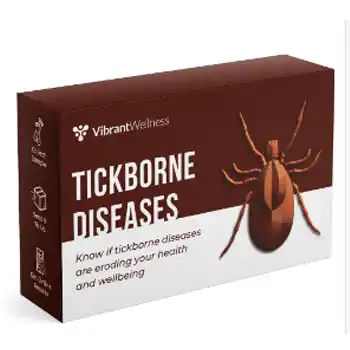What you need to know
Lyme disease is a bacterial infection that is transmitted to humans through the bite of infected ticks. Early detection and treatment are crucial for successful recovery, but accurate testing can be challenging. Here’s what you need to know about Lyme disease testing:
Types of Lyme Disease Tests
There are two types of tests used to diagnose Lyme disease: serological tests and molecular tests.
Serological tests detect antibodies produced by the body in response to the bacteria that cause Lyme disease. The two most commonly used serological tests are the enzyme immunoassay (EIA) and the Western blot. However, false-negative results are common in the early stages of infection, as it can take weeks for the body to produce detectable levels of antibodies.
Molecular tests, such as polymerase chain reaction (PCR), detect the genetic material of the bacteria in blood, urine, or cerebrospinal fluid. These tests are most reliable in the early stages of infection when the bacterial load is highest.
When to Test for Lyme Disease
If you have been bitten by a tick or have symptoms of Lyme disease, such as a rash or flu-like symptoms, you should consult a healthcare professional. Your doctor may order one or more tests to diagnose the infection.
It’s important to note that testing for Lyme disease is most accurate in the early stages of infection. If the infection has progressed, the bacteria may have spread to different areas of the body, making it more challenging to diagnose.
Interpreting Lyme Disease Test Results
Interpreting Lyme disease test results can be complex, as false-negative and false-positive results can occur. False-negative results can happen if the test is done too early, before the body has produced enough antibodies to be detected. False-positive results can occur if the test detects antibodies to a different bacterial infection.
Your doctor will interpret the test results based on your medical history, symptoms, and physical exam. If you have tested positive for Lyme disease, your doctor will start treatment with antibiotics. If the results are inconclusive or negative, your doctor may order additional tests or monitor your symptoms over time.
Takeaway
Testing for Lyme disease can be challenging, and accurate diagnosis depends on many factors. If you suspect you have been infected with Lyme disease, it’s crucial to consult a healthcare professional as soon as possible. By understanding the types of tests available and their limitations, you can be better equipped to advocate for your health and receive the best possible care.
I like using a really great intake form and the Tick 2.0 test by Vibrant Labs. Email me if you would like to learn more about this testing heather@thelymeboss.com
Have a Healthy Day!
Read my last blog I did about Lyme testing https://thelymeboss.com/why-is-lyme-testing-not-always-accurate/
Resource https://www.lymedisease.org/lyme-basics/lyme-disease/diagnosis/


2 Responses